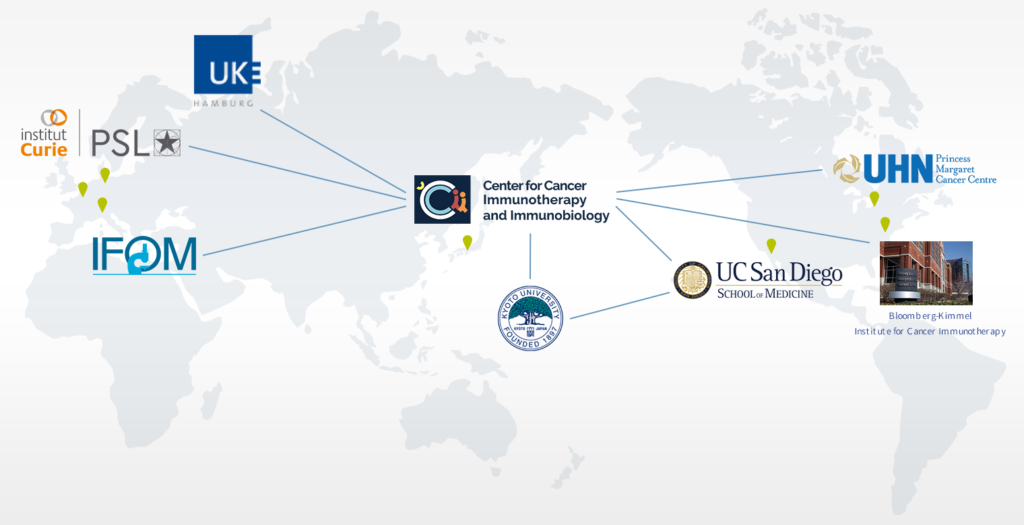
CCII & Kyoto University
As one of the oldest and most prolific research universities in Japan, over the past two decades the Kyoto University has considerably expanded its research focus on life sciences and medicine. The two recent Nobel prizes in Medicine or Physiology awarded in 2012 to stem-cell pioneer Shinya Yamanaka and in 2018 to CCII’s founding director Prof. Tasuku Honjo for the development of cancer immunotherapy demonstrate the increasing emphasis on research in life sciences and advanced medicine at Kyoto University. As a “designated national university” Kyoto University also received strategic funding for new initiatives in priority funding areas, including life sciences.
CCII’s Global Network
Cancer is a global disease that affects all humans and developing new therapies for cancer is an equally global endeavor. Immune checkpoint inhibitors were first discovered in Japan, but it was global pharmaceutical companies that brought the first anti-PD1 antibodies to market. Our goal at CCII is to become a hub for collaboration with research institutions and companies in Japan and abroad in order to accelerate the translation of new discoveries into new treatments to be delivered to patients. As a research organization, our goal is to collaborate at a global scale and to work with partners in the US, Europe, Asia, Africa, or Oceania. From the outset, we have been building a network with the main research organization in the field of cancer immunotherapy.
Working with Industry
Bringing new therapies to market requires an extensive collaboration between basic science, technology development, and pre-clinical and clinical research. While our main research focus is on fundamental research, we also support extensive collaborations with industry, based on decades of experiences in working with biotechnology and pharmaceutical companies at Tasuku Honjo’s lab at Kyoto University. At least in part, CCII has become a reality due to revenue earned from intellectual property transfer to industry, as well as from donations from pharmaceutical companies that have successfully commercialized cancer immunotherapy.
